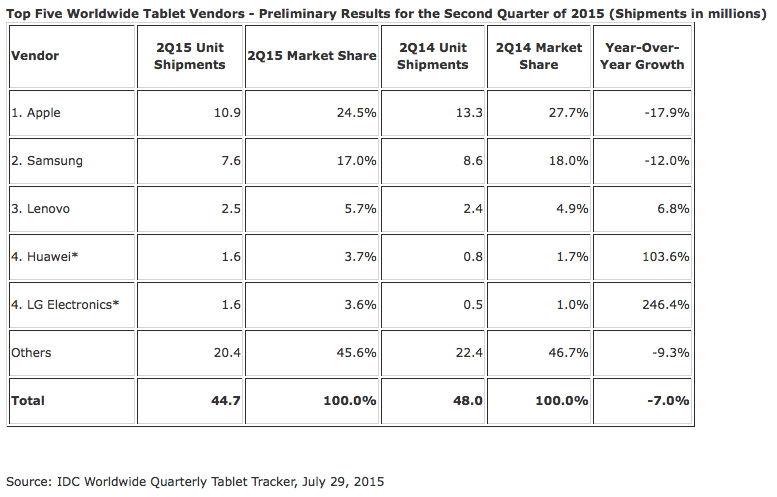
On this day in 1969, mankind first walked on the Moon as two the Apollo 11 astronauts — Neil Armstrong and Buzz Aldrin — stepped outside of the lunar module “Eagle”. On this day in 2015, here’s what happenend in the world of Apple:
- The National Football League announced a new domestic Game Pass service compatible with Apple TV
- MTV announced that it will reveal the nominees for the 2015 Video Music Awards on Apple’s Beats 1 radio station tomorrow at 7 AM PT/10 AM ET
- Apple World Today will be liveblogging the Apple 3Q 2015 earnings call. You can listen to the call yourself at http://www.apple.com/quicktime/qtv/earningsq315 but you’ll have to visit Apple World Today for our commentary
- Apple’s leasing about 30,000 square feet of office space in Seattle
The text version of the podcast is available below.

At 2014’s Internationale Spieltage (or “Spiel”) gaming convention in Essen, Germany, Spyfall by designer Alexandr Ushan made a splash as a great party game. It was difficult to obtain here in the US until June of this year, when it was picked up by distributor Cryptozoic Entertainment. Now you can grab a box and have a fun…or just go online.
Today there’s a browser-based version that is mobile-friendly, platform-agnostic, free and every bit as fun and hilarious as its paper sibling. It’s a game of bluffing, deduction, light role-playing and a lot of laughter. Spyfall is indeed a great party game that takes minutes to learn and often leads to hilarity. Here’s our look at Spyfall.
How it works
Espionage! Spying! Deceit! Deductive reasoning and mild panic! That’s what you’ll experience while playing Spyfall. The tabletop version is for three to eight players, with suggested ages of 15 and up. I’d suggest the same numbers for the digital version, as it’s possible for a group of 10 or more to reach the game’s conclusion before everyone has had a turn.
When playing Spyfall via a browser at spyfall.meteor.com, your iPad/iPhone/digital device becomes the game piece. Make sure everyone is online and in the same room (remote play will not work). One player hosts a game and receives a code, which he then gives to the other players. Everyone else selects “Join game,” enters the code and finally everyone meets up in the “lobby.” You’re now good to go.
Everything is text-based so the game is lightweight and very fast. The players find themselves in a random location and having a random job in that location. For example, the game might be set on a ship at sea, with players having the role of ship’s captain, cook, prisoner, first mate and so on. All except for one key player: the spy.

IDC provided data today showing that although Apple’s iPad continues to be the market share leader in the tablet market, its share has dropped markedly over the past year and the overall market for tablets is declining.
This year, Apple shipped 10.9 million iPads in the second quarter (ending June 30), while the number for 2014 was 13.3 million units. That’s a decline of 18 percent in one year. Apple’s share of the overall tablet space dropped from 27.7 percent in 2014 to 24.5 percent this year.
Apple’s not the only company seeing a drop. Rival Samsung fell from 8.6 million units in 2014 to 7.6 million units this year, with a marketshare drop of one point down to 17% in 2015. So who is gaining share? Lenovo, Huawei and LG Electronics are all seeing growth year over year. Part of the growth might be in the 2-in-1 tablet (“touchscreen laptop”) market, which is included in IDC’s numbers.

Our take on the news:
There are many possible reasons for the decline in the tablet market; the devices might be on a longer refresh market than smartphones, many users may prefer a “phablet” like the Apple iPhone 6 Plus to having both a smartphone and a tablet, and corporations might be slowing their purchases of the devices until they see more enterprise-oriented applications arrive.
Rumors have it that Apple may ship a significantly improved 7.9-inch iPad mini this year, while a larger iPad Pro with a 12.9-inch display might also make it to market. Both of these devices may jump-start Apple’s presence in the tablet market, since the less expensive iPad mini could be attractive in education while the larger device may have many applications in the enterprise.
Apple will probably continue to have problems competing against cheap, yet capable devices by companies like Huawei, and the lack of a true 2-in-1 tablet in the Apple lineup might also be hindering growth. Then again, this is still a very new product category — the first iPad shipped in 2010 — so the future is anyone’s guess.
What’s your take on tablets? Do you think they’re on the way out, replaced by a combination of larger smartphones like the iPhone 6 Plus and combo tablet-laptops like the Microsoft Surface III? Let us know in the comments below.
